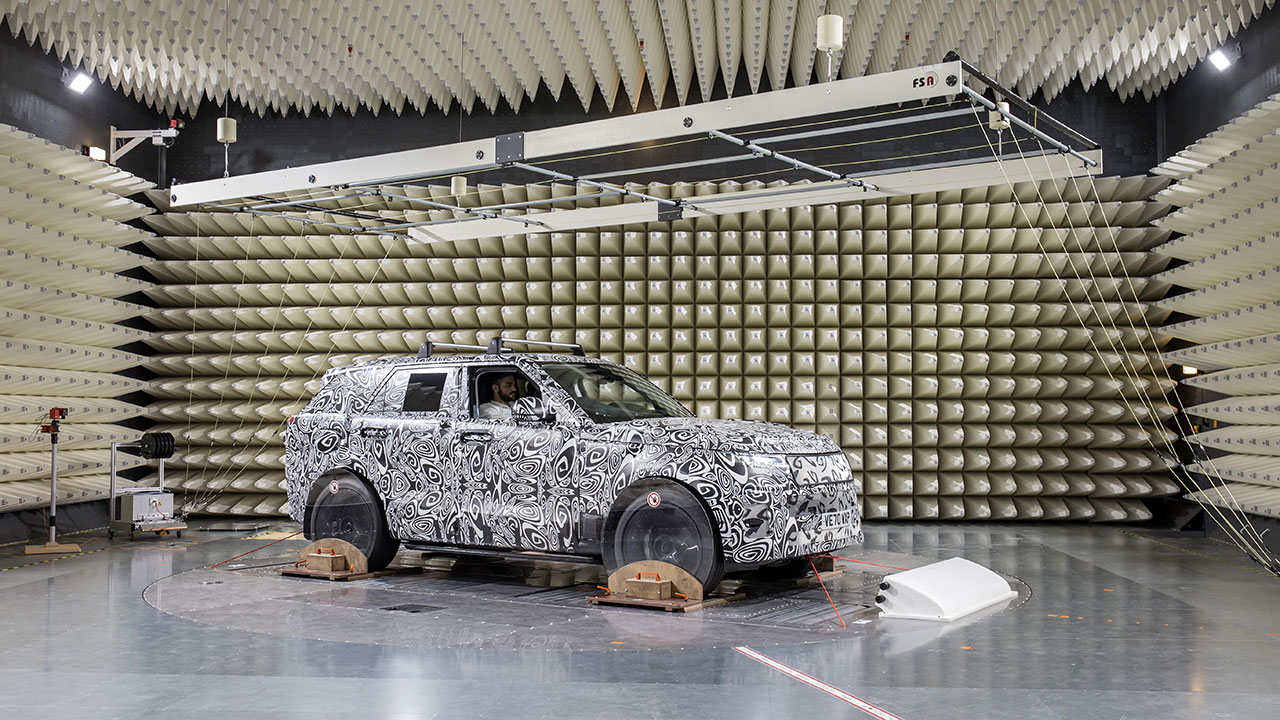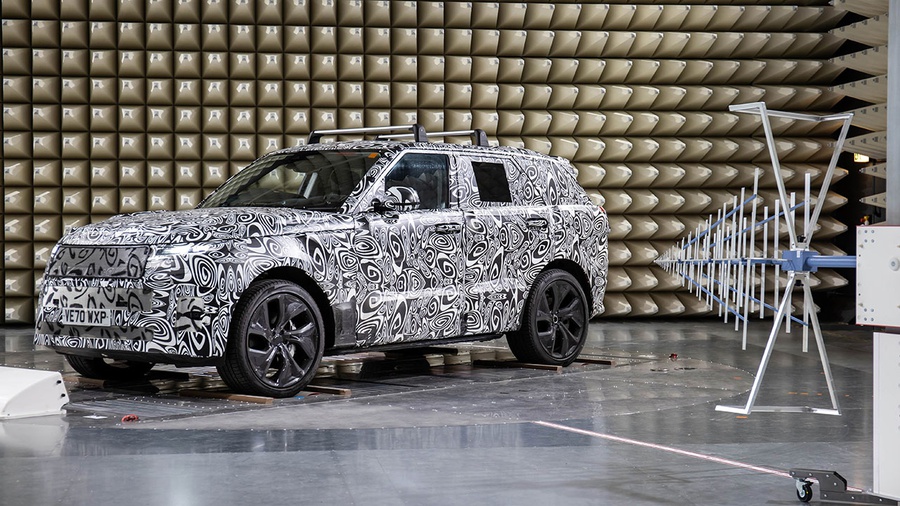Jaguar Land Rover has announced the opening of a laboratory to test the next generation of cars for the presence of electrical and radio interference.
Compliance of future cars with legislation and quality standards for wireless connectivity and electronics will be ensured by the Electromagnetic Compatibility (EMC) laboratory in Heydon, Great Britain. The Range Rover Sport, presented in May of this year, became the first car tested under the individual program in the new laboratory.
A critical aspect of vehicle operation is the ability of electrical equipment and systems to function flawlessly in an electromagnetic environment. Electromagnetic compatibility (EMC) limits the unintentional generation, distribution, and reception of electromagnetic energy. All in order to reduce the risk of unwanted effects, in particular electromagnetic interference.
Jaguar Land Rover's new automotive laboratory has two acoustic chambers: an electrically "silent" roller stand for testing the car at speed, and equipment for evaluating the performance of individual components such as batteries or electric motors. Features and services available in Jaguar and Land Rover cars will also be tested for electromagnetic compatibility (EMC): Bluetooth, GPS, Wi-Fi, 4G, 5G, adaptive cruise control, wireless charging and blind spot monitoring.
Jaguar Land Rover also explained that the opening of the new laboratory is another step towards the electrified future of the company. By 2030, the entire Jaguar and Land Rover range will be available in fully electric versions.
Source: Jaguar Land Rover


